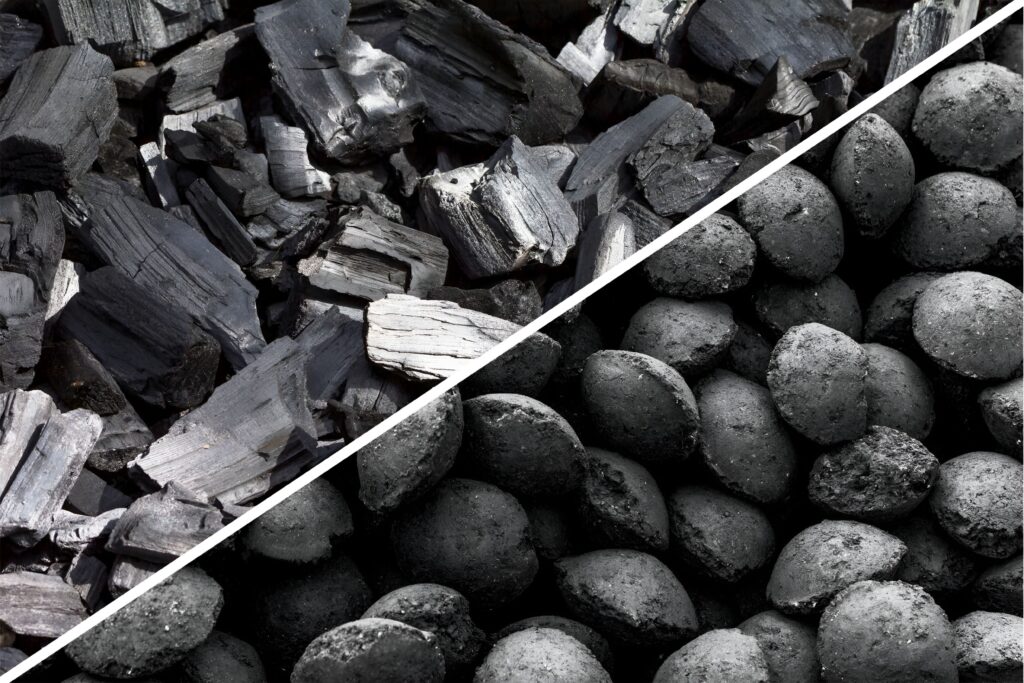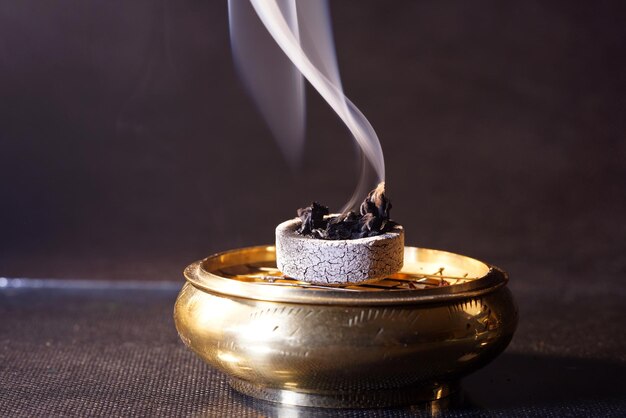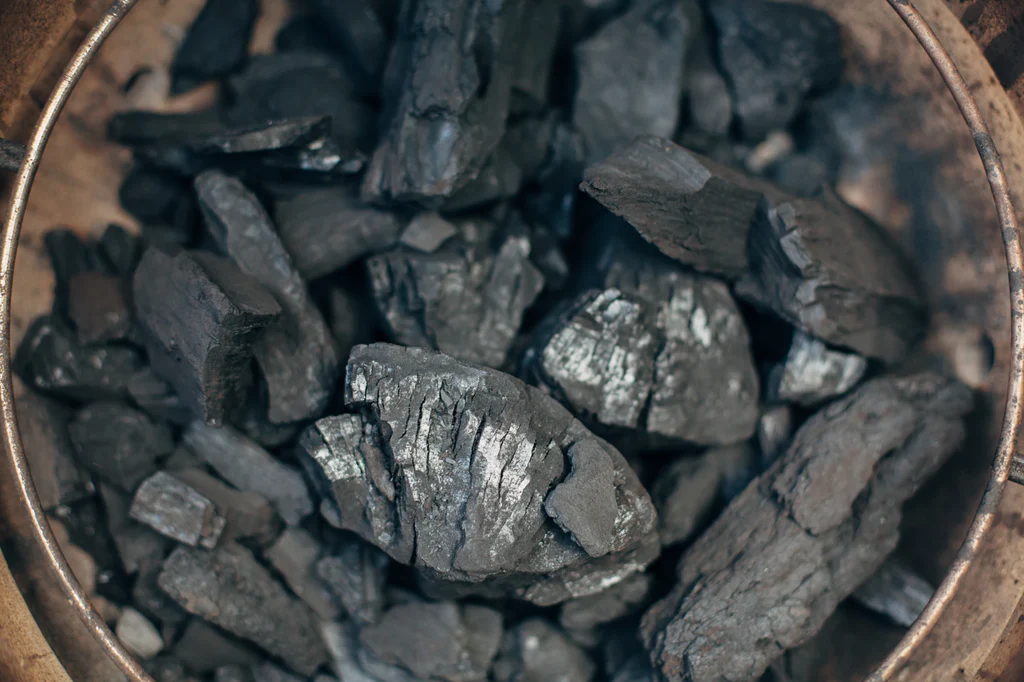Choosing Between Charcoal Briquettes and Lump Charcoal: A Long-Standing Debate
When it comes to grilling charcoal, the choice between charcoal briquettes and lump charcoal has long been a topic of discussion among BBQ enthusiasts and professionals alike. Both types of charcoal offer unique advantages and drawbacks, making the decision largely dependent on individual preferences, grilling methods, and environmental considerations. In this article, we will explore both sides of the debate, presenting the pros and cons of each type without taking sides—allowing you to make an informed decision based on your specific grilling needs.
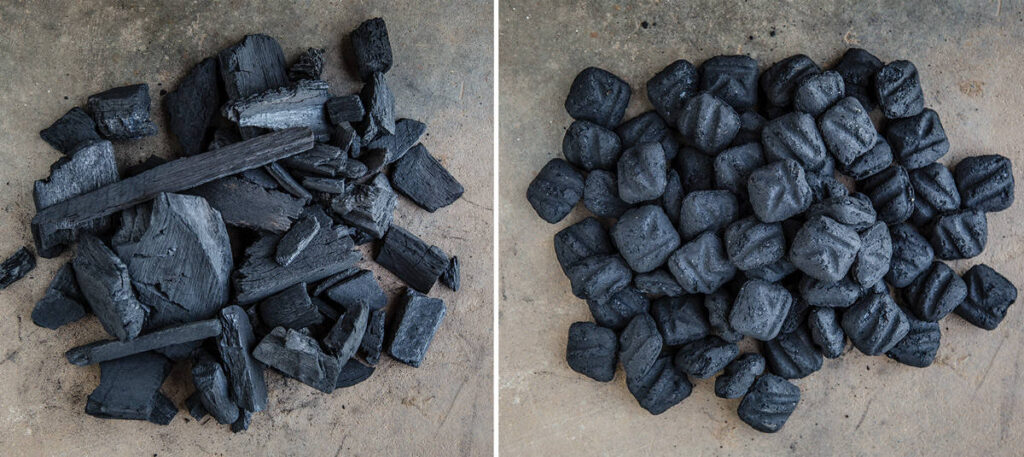
The Composition of Grilling Charcoal: Briquettes vs. Lump Charcoal
One of the main differences between charcoal briquettes and lump charcoal lies in their composition and how they are produced. Charcoal briquettes are made by compressing wood by-products like sawdust into uniform shapes using binders and additives. This manufacturing process gives briquettes their uniform size, which helps them burn consistently and predictably, an important feature for maintaining even cooking temperatures over long periods.
In contrast, lump charcoal is produced by burning hardwood without additives, resulting in pieces of natural wood charcoal. Lump charcoal appeals to those who want a more natural, additive-free grilling experience. However, the irregular shapes and varying sizes of lump charcoal can lead to inconsistencies in heat distribution, requiring more attention and skill during the cooking process.
Heat Output and Cooking Efficiency
Another key factor that separates briquettes and lump charcoal is their heat output and how they burn during grilling. Lump charcoal is known for burning hotter than briquettes, making it a popular choice for searing meats and high-heat grilling. The ability to reach high temperatures quickly is advantageous for certain cooking techniques, such as getting a perfect sear on steaks or grilling foods that cook quickly.
However, charcoal briquettes offer a more consistent burn over a longer period, which is especially beneficial for low-and-slow cooking methods like smoking or roasting. The controlled, steady heat from briquettes is ideal for maintaining temperatures during extended grilling sessions, and they tend to require less monitoring compared to lump charcoal. For grillers looking to slow-cook briskets or ribs over several hours, briquettes are often considered the more practical choice due to their even burn and predictable performance.
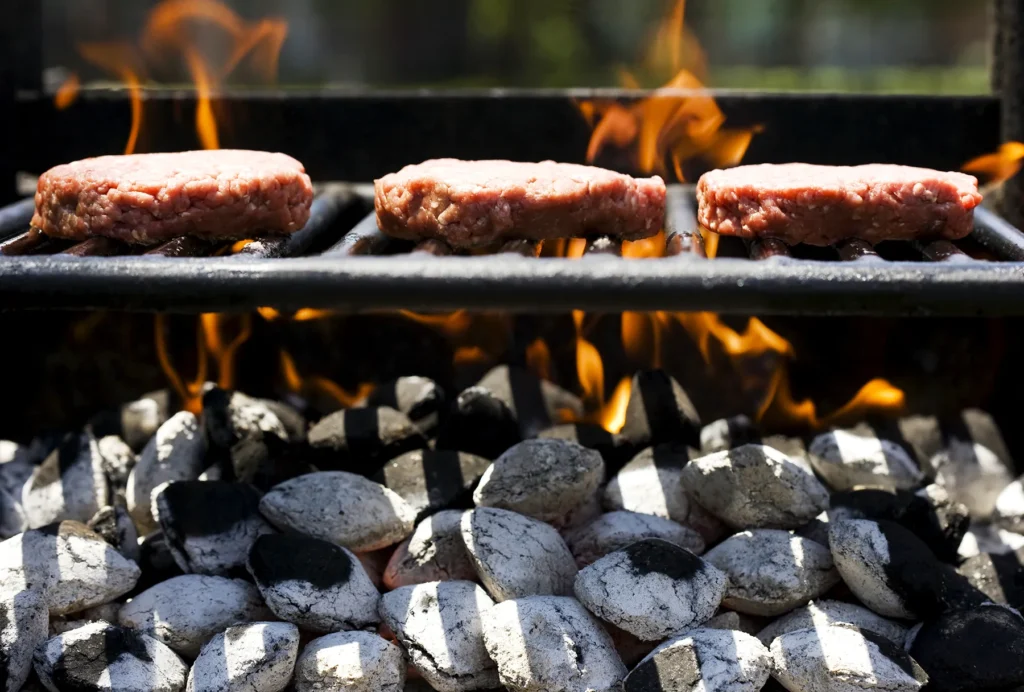
Environmental Impact and Sustainability
As more consumers and businesses prioritize sustainability, the environmental impact of grilling charcoal is another critical aspect to consider. Many prefer lump charcoal for its natural composition, as it is produced without additives or chemicals and comes directly from hardwood trees. Some manufacturers also source their wood from sustainably managed forests, further reducing the environmental footprint.
On the other hand, charcoal briquettes have also evolved to meet environmental standards. While earlier versions of briquettes contained fillers and binders that were not eco-friendly, many modern briquette brands have adopted cleaner production methods. Today, some briquettes are made using recycled wood materials and produce less ash, making them a more sustainable option than in the past. For those who want to reduce their carbon footprint while grilling, selecting premium briquettes with fewer additives and responsibly sourced materials is an eco-conscious option worth considering.

Convenience and Practicality: Choosing the Right Grilling Charcoal
For many grillers, convenience is a top priority, and this is where charcoal briquettes often have the upper hand. Because briquettes are uniformly shaped, they are easy to arrange in the grill, ensuring even heat distribution. They are also readily available in a wide range of sizes and packaging options, making them accessible to both casual grillers and professionals alike. Briquettes tend to be more affordable than lump charcoal, which can be a major consideration for those who grill frequently.
Lump charcoal, while valued for its naturalness and higher heat output, often requires more attention during the cooking process. The irregular shapes and sizes of lump charcoal pieces can make it more challenging to manage heat levels and distribute the charcoal evenly in the grill. For grillers who enjoy the hands-on process of managing the fire and are looking for a pure, natural cooking experience, lump charcoal can be rewarding. However, for those who prefer a more straightforward, less labor-intensive grilling session, briquettes are often the preferred choice.
Flavor Considerations: Smoky Intensity vs. Subtle Consistency
One of the most debated aspects of grilling charcoal is the flavor it imparts to the food. Lump charcoal is made from natural hardwood, which means it can add a more intense, smoky flavor to grilled foods. This makes it a favorite among BBQ enthusiasts who value bold, authentic flavors, especially when grilling meats like ribs, brisket, or chicken.
Charcoal briquettes, by contrast, offer a more subtle flavor profile. While some argue that the additives in certain briquettes can introduce unwanted flavors, premium-quality briquettes are designed to burn cleanly and consistently without overpowering the natural taste of the food. For many, the predictability and consistency of briquettes provide a balanced grilling experience where the food itself takes center stage, without being overwhelmed by smoky flavors.
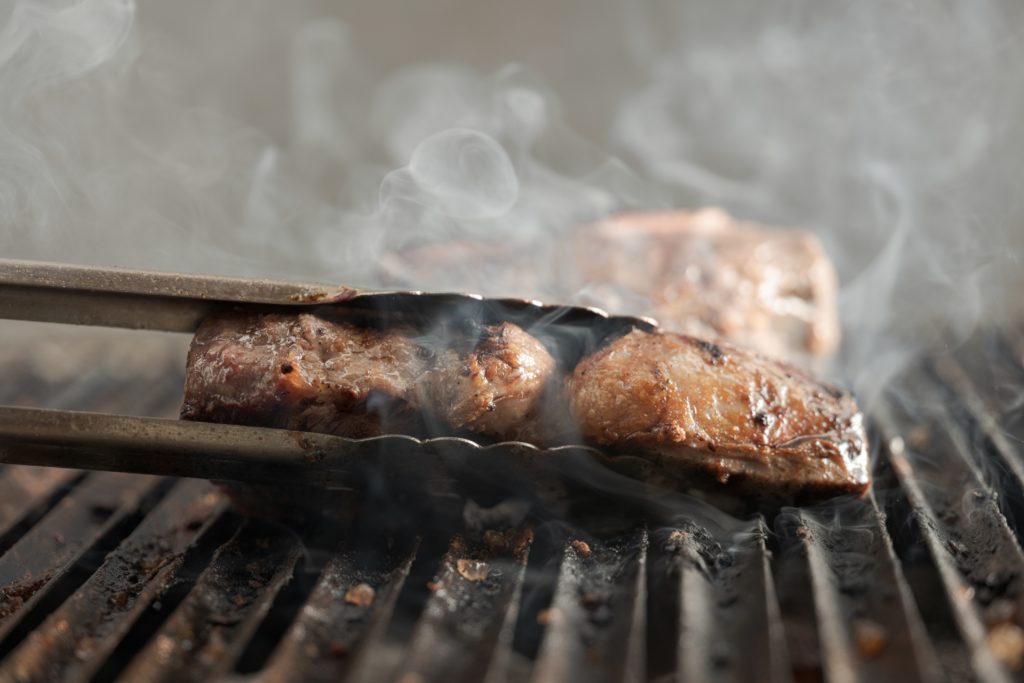
Conclusion: Weighing the Pros and Cons of Grilling Charcoal
In the debate between charcoal briquettes and lump charcoal, there is no one-size-fits-all answer. Each type of grilling charcoal offers distinct advantages depending on what you prioritize in your grilling experience. For those seeking high heat, a more natural product, and a stronger smoky flavor, lump charcoal may be the preferred option. However, for grillers who value consistency, longer burn times, ease of use, and affordability, charcoal briquettes are often the better choice.
When considering which type of charcoal is right for you, it’s important to factor in your grilling style, the types of food you cook, and the level of convenience you desire. Businesses and home grillers alike can benefit from exploring the pros and cons of each type to find the best fit for their specific needs.

